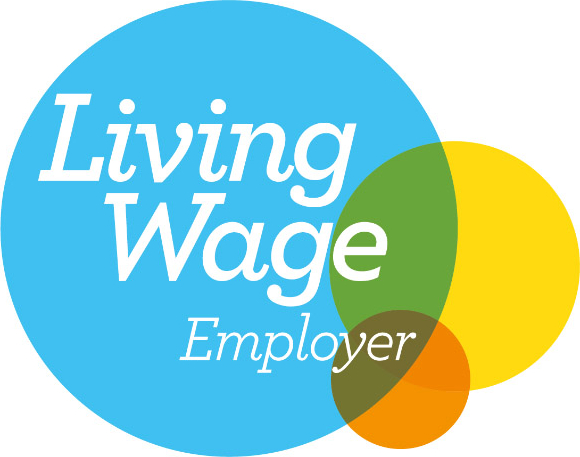
The NHS comes from the people.
It exists to enhance our health and wellbeing, supporting us to keep mentally and physically well, to improve when we are ill and, when we can not totally recuperate, to remain along with we can to the end of our lives. It operates at the limitations of science - bringing the greatest levels of human understanding and ability to save lives and enhance health. It touches our lives sometimes of standard human requirement, when care and compassion are what matter most.

The NHS is established on a common set of principles and worths that bind together the communities and individuals it serves - clients and public - and the staff who work for it.
This Constitution establishes the principles and worths of the NHS in England. It sets out rights to which patients, public and personnel are entitled, and promises which the NHS is committed to accomplish, together with duties, which the public, clients and staff owe to one another to ensure that the NHS operates fairly and effectively. The Secretary of State for Health, all NHS bodies, private and voluntary sector providers supplying NHS services, and regional authorities in the workout of their public health functions are required by law to take account of this Constitution in their decisions and actions. References in this file to the NHS and NHS services consist of local authority public health services, however recommendations to NHS bodies do not consist of regional authorities. Where there are distinctions of information these are discussed in the Handbook to the Constitution.
The Constitution will be renewed every ten years, with the involvement of the public, patients and staff. It is accompanied by the Handbook to the NHS Constitution, to be restored at least every 3 years, setting out present assistance on the rights, promises, duties and responsibilities established by the Constitution. These requirements for renewal are legally binding. They guarantee that the principles and worths which underpin the NHS are subject to regular review and re-commitment; which any federal government which looks for to modify the concepts or worths of the NHS, or the rights, promises, duties and duties set out in this Constitution, will need to take part in a full and transparent dispute with the general public, clients and personnel.
Principles that assist the NHS
Seven key principles assist the NHS in all it does. They are underpinned by core NHS worths which have been obtained from extensive conversations with personnel, clients and the general public. These worths are set out in the next area of this file.
1. The NHS provides a comprehensive service, readily available to all
It is readily available to all regardless of gender, race, disability, age, sexual preference, religious beliefs, belief, gender reassignment, pregnancy and maternity or marital or civil partnership status. The service is created to improve, avoid, identify and deal with both physical and mental illness with equivalent regard. It has a duty to each and every person that it serves and must respect their human rights. At the same time, it has a wider social task to promote equality through the services it offers and to pay particular attention to groups or areas of society where enhancements in health and life span are not keeping rate with the rest of the population.
2. Access to NHS services is based on medical requirement, not a person's ability to pay
NHS services are complimentary of charge, except in restricted scenarios approved by Parliament.
3. The NHS desires the highest requirements of excellence and professionalism
It offers high quality care that is safe, effective and concentrated on patient experience; in the people it employs, and in the support, education, training and development they receive; in the management and management of its organisations; and through its commitment to innovation and to the promotion, conduct and use of research to improve the existing and future health and care of the population. Respect, dignity, compassion and care need to be at the core of how patients and personnel are dealt with not only since that is the right thing to do however because client security, experience and outcomes are all improved when staff are valued, empowered and supported.
4. The client will be at the heart of whatever the NHS does
It needs to support individuals to promote and handle their own health. NHS services need to reflect, and should be coordinated around and tailored to, the requirements and choices of patients, their families and their carers. As part of this, the NHS will ensure that in line with the Armed Forces Covenant, those in the militaries, reservists, their households and veterans are not disadvantaged in accessing health services in the location they live. Patients, with their families and carers, where appropriate, will be associated with and spoken with on all choices about their care and treatment. The NHS will actively motivate feedback from the general public, clients and personnel, invite it and use it to enhance its services.
5. The NHS works throughout organisational limits
It operates in collaboration with other organisations in the interest of clients, regional communities and the wider population. The NHS is an integrated system of organisations and services bound together by the concepts and worths reflected in the Constitution. The NHS is devoted to working jointly with other regional authority services, other public sector organisations and a large range of personal and voluntary sector organisations to offer and provide enhancements in health and wellbeing.
6. The NHS is dedicated to offering finest worth for taxpayers' money
It is dedicated to providing the most effective, reasonable and sustainable use of limited resources. Public funds for healthcare will be devoted solely to the benefit of individuals that the NHS serves.
7. The NHS is accountable to the public, neighborhoods and patients that it serves
The NHS is a nationwide service moneyed through nationwide taxation, and it is the federal government which sets the structure for the NHS and which is liable to Parliament for its operation. However, many choices in the NHS, especially those about the treatment of people and the comprehensive organisation of services, are appropriately taken by the regional NHS and by patients with their clinicians. The system of duty and accountability for taking decisions in the NHS must be transparent and clear to the general public, patients and personnel. The federal government will make sure that there is constantly a clear and up-to-date statement of NHS accountability for this purpose.
NHS values
Patients, public and personnel have actually assisted develop this expression of values that motivate enthusiasm in the NHS which ought to underpin everything it does. Individual organisations will establish and construct upon these values, tailoring them to their regional requirements. The NHS worths provide commonalities for co-operation to accomplish shared goals, at all levels of the NHS.
Working together for clients
Patients come initially in whatever we do. We totally involve patients, personnel, families, carers, neighborhoods, and experts inside and outside the NHS. We put the needs of patients and neighborhoods before organisational boundaries. We speak out when things fail.
Respect and self-respect
We value everyone - whether client, their households or carers, or personnel - as a private, regard their aspirations and commitments in life, and seek to understand their concerns, requirements, capabilities and limitations. We take what others have to state seriously. We are sincere and open about our perspective and what we can and can not do.
Commitment to quality of care
We make the trust put in us by demanding quality and aiming to get the basics of quality of care - security, effectiveness and client experience - best whenever. We encourage and invite feedback from patients, families, carers, personnel and the general public. We utilize this to enhance the care we supply and build on our successes.
Compassion
We ensure that empathy is central to the care we supply and respond with mankind and kindness to each person's discomfort, distress, anxiety or requirement. We browse for the important things we can do, however little, to give convenience and relieve suffering. We discover time for clients, their families and carers, along with those we work alongside. We do not wait to be asked, since we care.
Improving lives
We make every effort to improve health and wellness and people's experiences of the NHS. We value excellence and professionalism any place we find it - in the everyday things that make individuals's lives much better as much as in scientific practice, service improvements and innovation. We recognise that all have a part to play in making ourselves, patients and our neighborhoods healthier.
Everyone counts
We maximise our resources for the benefit of the entire neighborhood, and make certain no one is left out, discriminated against or left. We accept that some individuals require more aid, that difficult decisions need to be taken - and that when we squander resources we lose opportunities for others.
Patients and the general public: your rights and the NHS pledges to you
Everyone who uses the NHS ought to comprehend what legal rights they have. For this factor, essential legal rights are summed up in this Constitution and explained in more information in the Handbook to the NHS Constitution, which likewise explains what you can do if you think you have actually not gotten what is rightfully yours. This summary does not modify your legal rights.
The Constitution also includes promises that the NHS is devoted to attain. Pledges exceed and beyond legal rights. This suggests that promises are not legally binding but represent a dedication by the NHS to provide detailed high quality services.
Access to health services
You have the right to get NHS services totally free of charge, apart from specific restricted exceptions approved by Parliament.
You can gain access to NHS services. You will not be declined access on unreasonable premises.
You have the right to receive care and treatment that is suitable to you, satisfies your requirements and shows your choices.
You have the right to expect your NHS to assess the health requirements of your neighborhood and to commission and put in location the services to fulfill those requirements as considered necessary, and when it comes to public health services commissioned by local authorities, to take actions to improve the health of the regional community.
You can authorisation for planned treatment in the EU under the UK EU Trade and Cooperation Agreement where you satisfy the relevant requirements.
You likewise deserve to authorisation for organized treatment in the EU, Norway, Iceland, Lichtenstein or Switzerland if you are covered by the Withdrawal Agreement and you satisfy the pertinent requirements.
You have the right not to be unlawfully discriminated versus in the arrangement of NHS services consisting of on premises of gender, race, impairment, age, sexual orientation, religion, belief, gender reassignment, pregnancy and maternity or marital or civil collaboration status.
You have the right to gain access to specific services commissioned by NHS bodies within maximum waiting times, or for the NHS to take all affordable steps to provide you a series of appropriate alternative providers if this is not possible. The waiting times are described in the Handbook to the NHS Constitution
The NHS pledges to:
- supply convenient, simple access to services within the waiting times set out in the Handbook to the NHS Constitution.
- make decisions in a clear and transparent method, so that patients and the public can comprehend how services are prepared and provided
- make the shift as smooth as possible when you are referred in between services, and to put you, your household and carers at the centre of decisions that impact you or them
Quality of care and environment
You have the right to be treated with a professional requirement of care, by appropriately certified and experienced staff, in a correctly approved or registered organisation that meets needed levels of security and quality.
You have the right to be cared for in a tidy, safe, protected and ideal environment.
You have the right to get ideal and healthy food and hydration to sustain great health and wellbeing.
You have the right to expect NHS bodies to monitor, and make efforts to enhance continually, the quality of health care they commission or offer. This includes improvements to the security, effectiveness and experience of services.
The NHS likewise pledges to recognize and share finest practice in quality of care and treatments.
Nationally authorized treatments, drugs and programs
You have the right to drugs and treatments that have been advised by NICE for use in the NHS, if your physician states they are clinically suitable for you.
You deserve to anticipate regional decisions on financing of other drugs and treatments to be made logically following a correct consideration of the proof. If the regional NHS chooses not to fund a drug or treatment you and your medical professional feel would be ideal for you, they will describe that choice to you.
You have the right to receive the vaccinations that the Joint Committee on Vaccination and Immunisation recommends that you should receive under an NHS-provided national immunisation program.
NHS pledge
The NHS likewise dedicates to supply screening programmes as advised by the UK National Screening Committee.
Respect, approval and confidentiality
You can be treated with self-respect and respect, in accordance with your human rights.
You have the right to be secured from abuse and overlook, and care and treatment that is degrading.
You deserve to accept or refuse treatment that is used to you, and not to be provided any health examination or treatment unless you have actually given valid permission. If you do not have the capability to do so, permission needs to be obtained from a person legally able to act upon your behalf, or the treatment should remain in your benefits.
You can be offered details about the test and treatment alternatives available to you, what they include and their risks and benefits.
You have the right of access to your own health records and to have any accurate inaccuracies remedied.
You have the right to personal privacy and confidentiality and to expect the NHS to keep your secret information safe and secure.
You deserve to be informed about how your information is used.
You can demand that your secret information is not utilized beyond your own care and treatment and to have your objections thought about, and where your dreams can not be followed, to be informed the factors including the legal basis.
The NHS also pledges:
- to make sure those involved in your care and treatment have access to your health details so they can care for you safely and successfully
- that if you are confessed to health center, you will not need to share sleeping lodging with clients of the opposite sex, except where suitable, in line with details set out in the Handbook to the NHS Constitution
- to anonymise the information gathered during the course of your treatment and use it to support research study and improve care for others
- where identifiable info has to be utilized, to give you the possibility to object any place possible
- to inform you of research studies in which you may be eligible to get involved
- to show you any correspondence sent out in between clinicians about your care
Informed option
You have the right to choose your GP practice, and to be accepted by that practice unless there are affordable grounds to decline, in which case you will be informed of those reasons.
You can express a choice for utilizing a particular doctor within your GP practice, and for the practice to try to comply.
You deserve to transparent, available and equivalent data on the quality of local healthcare providers, and on outcomes, as compared to others nationally
You deserve to choose about the services commissioned by NHS bodies and to info to support these options. The options offered to you will develop in time and depend upon your individual requirements. Details are set out in the Handbook to the NHS Constitution.
- notify you about the health care services offered to you, in your area and nationally.
- deal you easily available, dependable and pertinent information in a kind you can understand, and support to utilize it. This will allow you to participate completely in your own healthcare choices and to support you in making choices. This will consist of info on the variety and quality of clinical services where there is robust and precise details available
Involvement in your health care and the NHS
You deserve to be associated with planning and making choices about your health and care with your care supplier or providers, including your end of life care, and to be given details and support to allow you to do this. Where suitable, this right includes your family and carers. This includes being provided the possibility to handle your own care and treatment, if suitable.
You can an open and transparent relationship with the organisation supplying your care. You must be outlined any security occurrence associating with your care which, in the opinion of a healthcare professional, has actually caused, or might still trigger, substantial harm or death. You need to be given the facts, an apology, and any reasonable assistance you need.
You deserve to be included, directly or through agents, in the preparation of health care services commissioned by NHS bodies, the advancement and factor to consider of proposals for modifications in the method those services are provided, and in choices to be made affecting the operation of those services
- supply you with the information and support you need to influence and scrutinise the preparation and shipment of NHS services.
- operate in partnership with you, your household, carers and representatives
- involve you in conversations about preparing your care and to offer you a composed record of what is agreed if you want one
- encourage and invite feedback on your health and care experiences and utilize this to improve services
Complaint and redress
See the NHS website for information on how to make a complaint and other methods to give feedback on NHS services.
You can have any problem you make about NHS services acknowledged within 3 working days and to have it properly investigated.
You have the right to discuss the way in which the complaint is to be dealt with, and to understand the duration within which the investigation is likely to be finished and the reaction sent.
You have the right to be kept informed of progress and to understand the outcome of any examination into your grievance, consisting of a description of the conclusions and verification that any action needed in consequence of the grievance has actually been taken or is proposed to be taken.
You have the right to take your problem to the independent Parliamentary and Health Service Ombudsman or City Government Ombudsman, if you are not pleased with the method your problem has been dealt with by the NHS.
You deserve to make a claim for judicial review if you think you have actually been directly affected by an unlawful act or decision of an NHS body or local authority.
You can settlement where you have been hurt by negligent treatment
The NHS also vows to:
- ensure that you are treated with courtesy and you get suitable assistance throughout the handling of a problem; which the truth that you have actually grumbled will not adversely affect your future treatment.
- guarantee that when mistakes happen or if you are harmed while getting health care you get a proper description and apology, provided with sensitivity and acknowledgment of the trauma you have actually experienced, and understand that lessons will be found out to help prevent a comparable incident taking place once again
- make sure that the organisation finds out lessons from complaints and claims and utilizes these to enhance NHS services
Patients and the public: your responsibilities
The NHS comes from all of us. There are things that we can all provide for ourselves and for one another to help it work successfully, and to make sure resources are utilized responsibly.
Please identify that you can make a significant contribution to your own, and your family's, good health and health and wellbeing, and take individual responsibility for it.
Please register with a GP practice - the primary point of access to NHS care as commissioned by NHS bodies.
Please deal with NHS personnel and other patients with regard and recognise that violence, or the triggering of annoyance or disturbance on NHS facilities, might result in prosecution. You ought to identify that violent and violent behaviour might result in you being refused access to NHS services.
Please offer precise information about your health, condition and status.
Please keep consultations, or cancel within reasonable time. Receiving treatment within the optimum waiting times might be jeopardized unless you do.
Please follow the course of treatment which you have concurred, and speak to your clinician if you discover this difficult.
Please get involved in essential public health programmes such as vaccination.
Please make sure that those closest to you understand your dreams about organ donation.
Please give feedback - both positive and negative - about your experiences and the treatment and care you have received, consisting of any unfavorable responses you may have had. You can often provide feedback anonymously and offering feedback will not affect adversely your care or how you are treated. If a relative or somebody you are a carer for is a client and not able to provide feedback, you are encouraged to give feedback about their experiences on their behalf. Feedback will help to enhance NHS services for all.
Staff: your rights and NHS promises to you
It is the commitment, professionalism and devotion of staff working for the benefit of the individuals the NHS serves which truly make the difference. High-quality care needs high-quality work environments, with commissioners and suppliers intending to be companies of choice.
All staff needs to have fulfilling and beneficial tasks, with the freedom and self-confidence to act in the interest of clients. To do this, they require to be relied on, actively listened to and offered with meaningful feedback. They should be treated with regard at work, have the tools, training and assistance to provide thoughtful care, and opportunities to develop and advance. Care professionals need to be supported to increase the time they invest directly contributing to the care of patients.
The Constitution uses to all personnel, doing clinical or non-clinical NHS work - consisting of public health - and their employers. It covers staff any place they are working, whether in public, personal or voluntary sector organisations.
Your rights
Staff have extensive legal rights, embodied in basic work and discrimination law. These are summarised in the Handbook to the NHS Constitution. In addition, individual agreements of employment contain terms and conditions giving staff further rights.
The rights exist to assist guarantee that staff:
- have a good working environment with versatile working opportunities, constant with the requirements of patients and with the manner in which people live their lives
- have a reasonable pay and agreement framework
- can be involved and represented in the work environment
- have healthy and safe working conditions and an environment complimentary from harassment, bullying or violence
- are dealt with relatively, equally and devoid of discrimination
- can in certain circumstances take a problem about their employer to a Work Tribunal
- can raise any interest in their employer, whether it is about safety, malpractice or other danger, in the general public interest.

NHS promises
In addition to these legal rights, there are a number of promises, which the NHS is dedicated to attain. Pledges exceed and beyond your legal rights. This indicates that they are not lawfully binding however represent a commitment by the NHS to supply high-quality working environments for staff.









